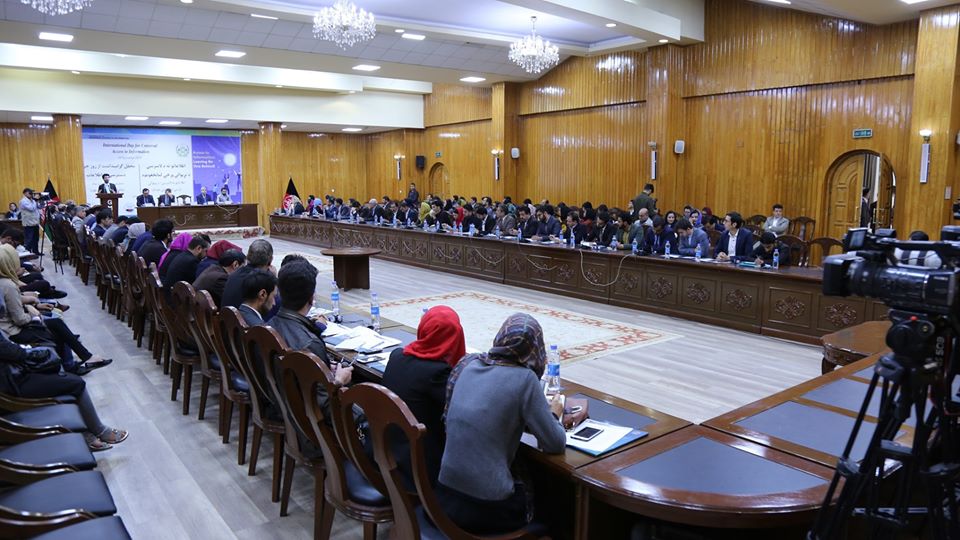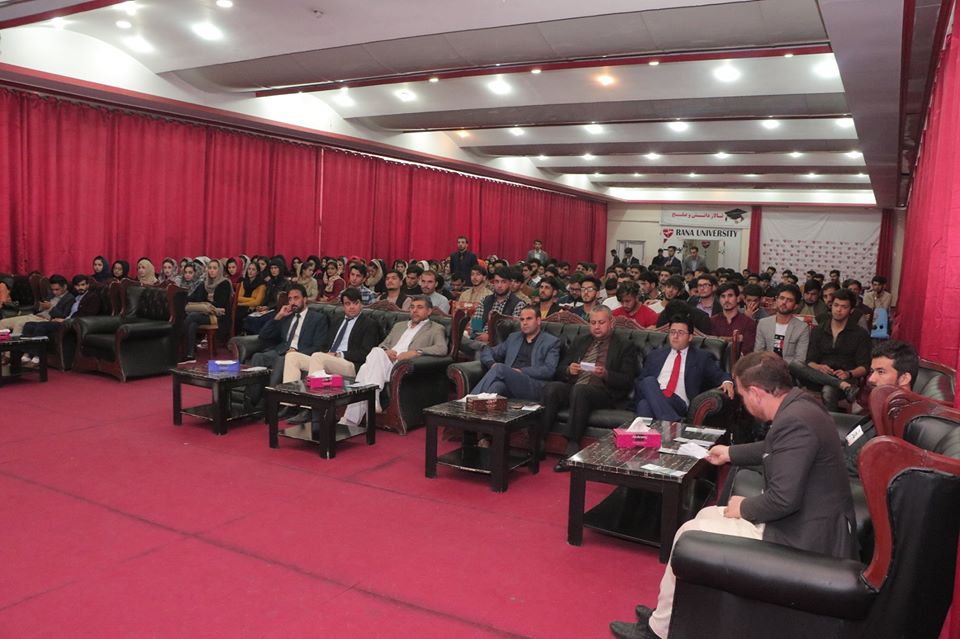A Brief Report of Access to Information Commission (AIC) in 2019

The Access to Information Commission has been mostly involved in organization building, strategic relations and public outreach during the last nine months when it started off in January 2019. Below is a one-paper brief report of the major activities of the commission, its future plans and recommendations to the international community and government.
The Access to Information Commission (the Commission) is new and requires intensive resource mobilization and organization building. During this time, the Commission rented a new building, recruited twenty new technical staff, vehicles for the five Commissioners and the Secretariat, as well as securing an additional AFN 12 million ($153,000) from the Ministry of Finance for the Commissions operation. Furthermore, the Commission developed four Standard Operation Procedure for the Commission: Code of Conduct for the Commission, Internal Affairs of the Commission, Internal Election of the Commission, Guideline on Document Archive and two SOPs for government agencies: Complaints Registration & Redressal as well as Guideline on Information Sharing.
The single major function of the commission is to oversee the process of access to information in the country. During the last nine months, around 245 requests for information has been submitted to the government agencies. The commission has received very few complaints during this time. Out of 26 complaints received during the last nine months, 11 of them have been resolved and the rest is under process. The complaints very mostly filled by investigative journalist including Pajwohk News Agency, Payk Investigative Center, Nai, Integrity Watch Afghanistan and some individual complaints. Furthermore, the Commission conducted an assessment of proactive disclosure of information by 52 government agencies, mostly done through their respective websites. Out of the 52 government agencies covered, 23 agencies scored 70-90% which includes Ministry of Agriculture, Ministry of Telecommunications, 22 agencies scored 50-70% which includes Ministry of Health and Ministry of Culture and 7 agencies scored 0-50% which includes security agencies and Ministry of Education. The Commission is working with the government agencies to fulfill their obligations under article 15 of the law.

The Commission has also tried to establish strategic relations with stakeholders and starts its public outreach program. The Commission has met with government agencies, civil society and media, as well as international community. Our public outreach has been very limited during this time due lack of sources. We have just started to meet students in the universities, civil society activists and media. The Commission has also travelled to four provinces so far including Nangarhar, Balkh, Parwan and Kunar.
In the next one year, the Commission will focus on organizational building, strategic relations and public outreach. The Commission has planned to travel to at least 20 provinces, and hire representatives in each of the eight zones, reach out to the universities, and ensure that public services agencies hold public hearings and provide the necessary information to citizens specially by the municipalities. We will continue to work with the stakeholders including the media, civil society and international community to mobilize the necessary resources to fulfill our objectives.
Since the Commission taken a move active role, there is a tendency by the government to introduce laws that would limit access to information including a classification law. The Public Information Officers are not dedicated staff and not fully supported by the leadership in their agencies. The Commission itself is not part of the national budget and this affects smooth availability of resources. This and other factors have resulted in very low request for information and complaints as reported above. The Commission needs the support of the international community and government to plan and overcome the inhibiting factors and enhance the enabling environment for the access to information in the country.
Problems and Recommendations:
Budget: Human resource structure of the AIC, nature of its work, and responsibilities for the people requires Access to Information Commission to be given the status of independent budgetary unit within national budget document. This will enable AIC to allocate the resources and finance its activities according to AIC plan and needs, from its 70 million AFN annual budget, without any major obstacles.
Finance: Currently, our finance and procurement processes must go through a lengthy bureaucratic process of MoIC, which negatively affects AIC performance and operations.
Law: Although the current version of ATI law is endorsed by the presidential decree, it still needs approval of the joint committee of the Afghan national assembly. Meanwhile, the upper house wants to bring some modification in the law which believe unnecessary, therefore the law is stuck in joint committee.
Awareness: One of the major functions of AIC is raising awareness at the public and government levels, to fulfill this initiative AIC needs financial support of the donor organizations.
AIC would like to ask donor community to push the relevant organizations inside donor community and government, to help AIC fulfillment of it’s task, to make access to information a reality and make ready the ground for transparency, accountability and anti corruption.
